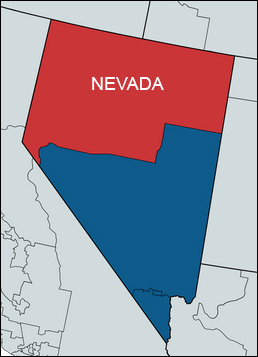By Jim Ellis — Thursday, April 18, 2024
Senate
Nevada: Brown Posts Big Primary Lead — A new Tarrance Group poll for the National Republican Senatorial Committee produces good news for endorsed candidate Sam Brown, the businessman and Afghan War disabled veteran. The survey (April 7-10; 500 likely Nevada Republican primary voters; live interview) finds Brown posting 58 percent support. His closest opponent, former state assemblyman and past secretary of state and congressional nominee Jim Marchant, records only a six percent preference factor. Former US Ambassador to Iceland Jeff Gunter, who has pledged to spend $3 million of his own money to fund his candidacy, and former lieutenant governor candidate Tony Grady each have only three percent support.Aside from yielding Brown’s highly positive reviews, the survey data returns bad news for Gunter. When the respondents were asked for their second choice in the race, Marchant posted 30 percent as opposed to Gunter’s four percent. The winner of the June 11 primary then challenges Sen. Jacky Rosen (D) in what will be a premier general election campaign.
West Virginia: Justice Continues Holding Commanding Lead — Research America published the results of their early April survey (April 3-9; 400 likely West Virginia Republican primary voters; live interview & online) that again sees Gov. Jim Justice (R) holding a huge lead over Rep. Alex Mooney (R-Charles Town) as the two compete to succeed retiring Sen. Joe Manchin (D). As has been found in many other surveys, Research America pegs the Justice lead at 66-24 percent as the two enter the final month of campaigning. The West Virginia primary is scheduled for May 14.
Winning the West Virginia race in November is critical to Republican hopes of capturing the Senate, and the eventual Republican nominee should have little trouble converting the seat in the general election. Doing so would even the Senate’s partisan division at 50D-50R.
House
CA-20: Fong tops Bourdeaux in Special Election Poll — Now that Assemblyman Vince Fong (R-Bakersfield) has successfully defended the secretary of state’s lawsuit attempting to prevent him from running in the regular term and simultaneously for state Assembly with last week’s appellate court ruling, we now see favorable Fong survey data.
The assemblyman placed first in the March 19 special election primary with 42.3 percent of the vote in a field of nine jungle primary candidates. Also advancing into the May 21 special general election is Tulare County Sheriff Mike Bourdeaux (R) who posted a 25.8 percent support figure. The special election winner will immediately be sworn into Congress and finish the term from which former House Speaker Kevin McCarthy (R) resigned.
WPA Intelligence surveyed the 20th District (April 1-3; 400 likely CA-20 special election voters; live interview) and finds Fong leading Sheriff Bourdeaux by a 46-30 percent margin. He also has the advantage in three of the district’s four counties, Fresno, Kern, and Kings, while Bourdeaux leads in his home of Tulare County.
NJ-8: Rep. Menendez Trailing in Primary — A just released Global Strategy Group survey (April 1-4; 400 likely NJ-8 Democratic primary voters; live interview) finds freshman Rep. Rob Menendez (D-Jersey City), suffering the fallout from his father’s upcoming corruption trial, trailing Hoboken Mayor Ravi Bhalla (D) by a 33-28 percent margin with businessman Kyle Jasey (D) attracting seven percent of the vote.
With Sen. Bob Menendez (D) facing a jury trial in early May, even more attention will be paid to the Menendez family, though Congressman Menendez is not accused of any wrongdoing. The senator’s favorability index in the 8th District, however, has dropped to 22:69 percent favorable to unfavorable according to the GSG poll. Rep. Menendez is in much better position but barely in positive territory at 38:34 percent. Mayor Bhalla, not as well known, ties the congressman on the favorable point at 38 percent positive, but his negative number is only eight percent. This June 4 primary challenge continues to be rated as a highly competitive contest.







